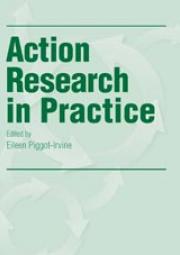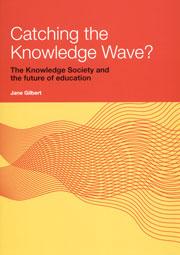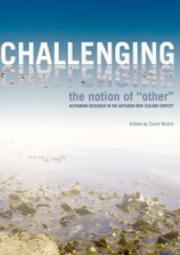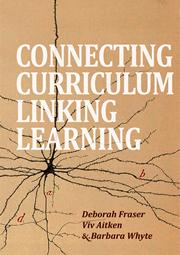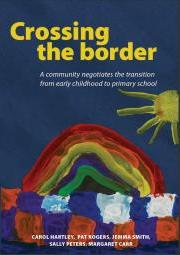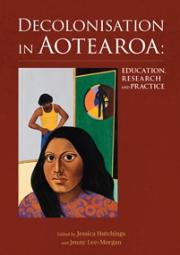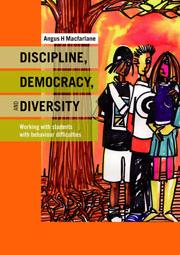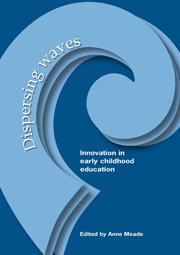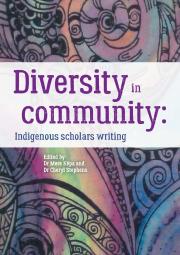You are here
Books A-Z
Autism spectrum disorder (ASD) is a complex and increasingly prevalent condition which most educators will encounter during their career. This book aims to help teachers and other education professionals provide for children and young people with ASD at all levels of education.
This book shows how new possibilities and alternatives to conflict can be opened up when teachers can draw on a theoretical framework and some specific relationship principles.
This book chronicles the building of a professional body for the teaching workforce in Aotearoa New Zealand.
It explores the issues and challenges, the people and the politics, of the uneasy space between the teaching profession and the state. It is both the history of an organisation and an insightful exploration of the nature of professional status for teachers.
This resource sets out 11 principles that are inherent in best practice for teaching and learning in an online bicultural delivery environment. The intention of these principlesis to provide all kaiako with a shared understanding of online teaching expectations that embrace tikanga principles and practices throughout all areas of their online teaching . The bicultural principles were initially developed for a tertiary organisation, Te Rito Maioha Early Childhood New Zealand, but are readily transferrable to all educational settings.
Available 26 August
In the face of persistent challenges within Aotearoa New Zealand’s education system, Building on our Strengths offers a fresh perspective on ways of improving the system by focusing on what we are good at. With the OECD highlighting our system’s high quality but low equity, this book shifts from a narrow focus on problems to uncovering what we do well.
Drawing on extensive research and personal insights from the former Chief Education Scientific Advisor to the Ministry of Education, this book explores five key strengths that could serve as catalysts for transformation. From the power of being local, learning from children, and trying to be bicultural, to the rich traditions of partnerships, creativity, and innovation, Building on our Strengths identifies imperatives to enhance educational success.
In a time when education reform often focuses on deficiencies, this book champions the understanding that leveraging our strengths is crucial for creating a more equitable and higher quality education system.
This monograph is designed to highlight areas of research strength found at The University of Auckland’s Faculty of Education. The chosen theme of this volume, “Changing trajectories of teaching and learning”, encompasses the Faculty’s strong research presence in ongoing teacher learning and in raising student achievement, particularly in lower decile schools and in the area of literacy. It also encompasses the Faculty’s role in enhancing teaching and learning through researching quality teacher education and social work education.
Author: Jan Robertson
Coaching Leadership is about building leadership capacity in individuals, and in institutions, through enhancing professional relationships.
Coaching Leadership is about building leadership capacity in individuals, and in institutions, through enhancing professional relationships. It is based on the importance of maximising potential, and harnessing the ongoing commitment and energy needed to meet personal and professional goals.
Teachers and principals know that students learn best when involved, challenged and inspired. An integrated curriculum offers teachers the tools to engage, extend and enthuse students. Connecting Curriculum, Linking Learning bridges a gap in the literature on curriculum integration. Based on current New Zealand classroom research, this book provides vivid portraits of teachers' practice, and reveals the strengths and weaknesses of an integrated approach. Featuring drama as inquiry alongside other arts-inspired approaches to integration, Connecting Curriculum, Linking Learning reflects the ethos of the New Zealand curriculum.
Ally Bull, Chris Joyce, and Rose Hipkins
What might a future-oriented school science curriculum look like in years 1–8? This handbook shares ideas to help you design a coherent, school-based science curriculum that will meet the needs of your students and community.
This book honours the work of John Codd and Roy Nash, who made important contributions to educational scholarship and to education policy and practice in this country and internationally. Launching the book at an event at Massey University in July, vice chancellor Steve Maharey made the comment that the best way to honour their work now was for the book to be widely read.
John Codd was best known for his robust analysis and critique of education policies based on neo-liberal thinking. Roy Nash’s central concern was inequality and educational achievement. The contributors to this memorial volume discuss the legacy of these two important educationalists, while at the same time critiquing and engaging with their work in new ways.
Crossing the border has been written for early childhood education and primary school teachers who are interested in the transition from ECE to school.
How to provide continuity and build connections between the two sectors has always been a focus for teachers, but up until now there has been little advice as to exactly what this means in practice. This book offers valuable insights into the ways in which one community negotiated this transition. It provides practical suggestions for schools and early childhood centres and analysis of of the issues involved in their implementation.
This book examines decolonisation and Māori education in Aotearoa New Zealand in ways that seeks to challenge, unsettle and provoke for change.
Editors Jessica Hutchings and Jenny Lee-Morgan have drawn together leading Māori writers and intellectuals on topics that are at the heart of a decolonising education agenda, from tribal education initiatives to media issues, food sovereignty, wellbeing, Christianity, tikanga and more. A key premise is that colonisation excludes holistic and Māori experiences and ways of knowing, and continues to assert a deep influence on knowledge systems and ways of living and being, and that efforts to combat its impact must be broad and comprehensive.
This book celebrates and reflects on what it takes to build a dynamic community of Māori scholars. It is the story of the community that was purposefully nurtured through the Māori and Indigenous Graduate Enhancement programme (MAI) and the International Indigenous Writing retreats organised by Ngā Pae o Te Māramatanga, Aotearoa New Zealand’s Māori Centre of Research Excellence. The vision was to grow indigenous research and researchers and the achievement is evident in this collection.





